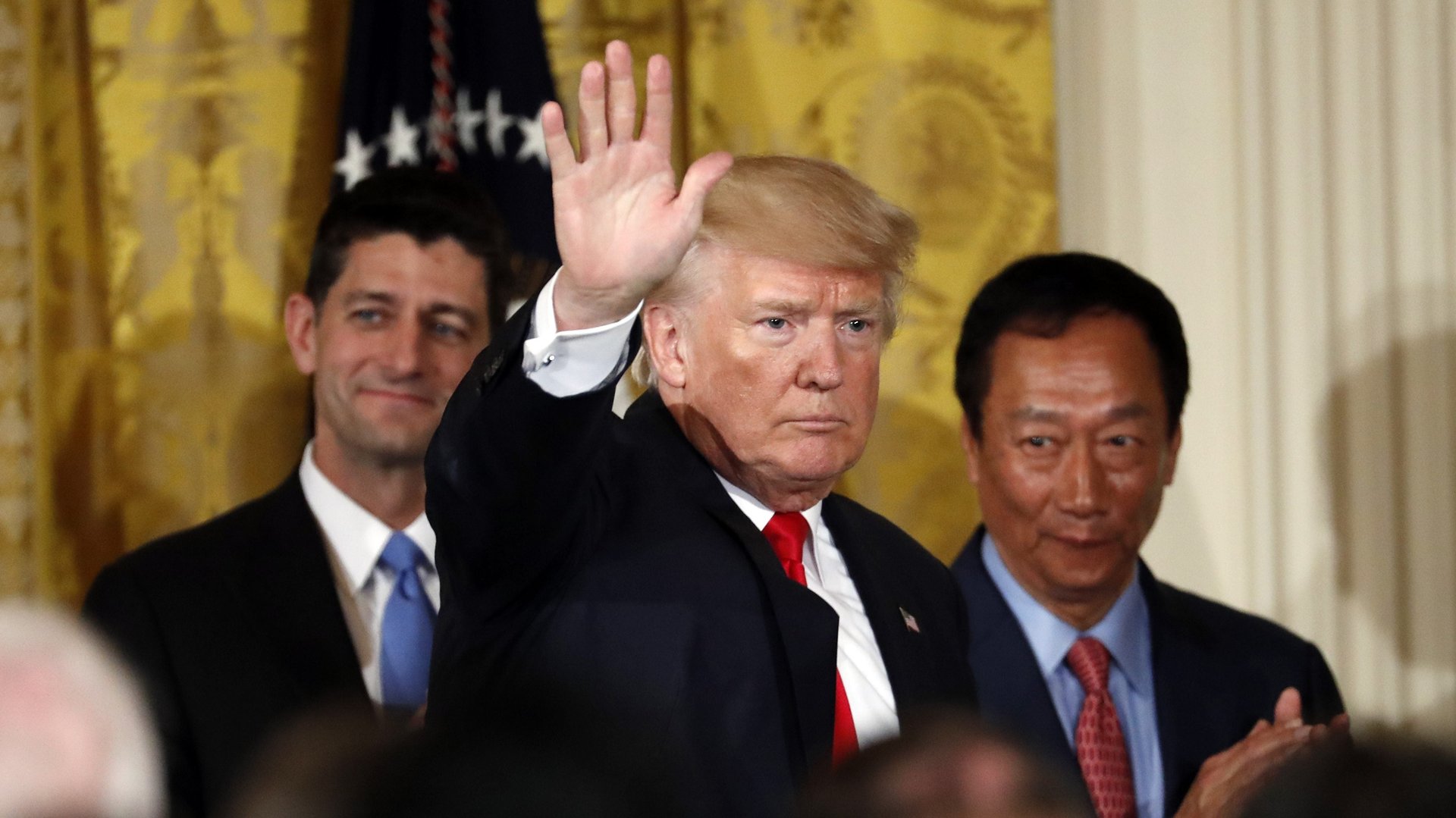A list of all the people (and robots) who deserve more credit for bringing Foxconn to Wisconsin than Donald Trump
US president Donald Trump is celebrating Foxconn’s decision to build a new plant in Wisconsin as a personal win. Had he not been elected, the Taiwanese electronics manufacturer wouldn’t be planning to invest $10 billion to build LCD screens in the US, he said when he announced the plans on July 26.


US president Donald Trump is celebrating Foxconn’s decision to build a new plant in Wisconsin as a personal win. Had he not been elected, the Taiwanese electronics manufacturer wouldn’t be planning to invest $10 billion to build LCD screens in the US, he said when he announced the plans on July 26.
But perhaps Trump should be a tad less self-congratulatory. After all, company executives deciding whether to open factories in the US weigh a variety of factors other than who occupies the White House. Here are a few people who deserve more credit than they got:
Wisconsin taxpayers
Foxconn’s facility and the 13,000 jobs it’s expected to eventually generate do not come for free. The state of Wisconsin is offering the company $3 billion in tax credits and other economic incentives. That’s $230,000 per job—assuming, which perhaps we shouldn’t, that all those jobs will appear—for jobs which will pay an average of $54,000.
Local communities could end up pitching in even more funds to Foxconn’s cause to build sewers and roads, the Milwaukee Journal Sentinel reports.
American consumers
One key reason to produce in the US over other places is to be close to its millions of shoppers. Proximity doesn’t matter that much when making easily transportable goods like socks, but it grows in importance as the products get bulkier and bigger—like TV screens, which is what Foxconn is going to be making in Wisconsin.
Robots
It may be obvious that companies need someone—or something—to make things, but the robots and machines available in the US are a big draw for manufacturers, according to a 2014 survey among more than 70 global firms.
The poll, by a consortium of universities, asked companies to rank their reasons for deciding to increase production in North America. On a scale of 1 (unimportant) to 5 (extremely important), they gave automation and other technological advances a 3.2. Firms that increased production in other regions ranked technology as less important. Innovation and design skills were also more important reasons to settle in North America than they were in other regions.
Foxconn’s high-tech facility will probably require plenty of both designer/engineer types and robots.
Foreign companies
Trump makes it sound like his election suddenly rekindled interest in bringing factories back to the US, but data from the global-firm survey suggest that’s been happening for a while. It also shows that much of the “re-shoring” is being done by foreign, not American firms.
Take Chinese investors. Long before Trump got elected, they were ramping up their foreign direct investment in the US, much of it in manufacturing.
It’s very possible that Foxconn chairman Terry Gou, who watched over Trump as he claimed credit for the Wisconsin project, was pondering an American factory long before Trump got elected.
“The incumbents of whatever party is in office will always be happy to take credit on their watch,” said Andy Tsay, a professor at Santa Clara University who co-authored the report on the survey results.